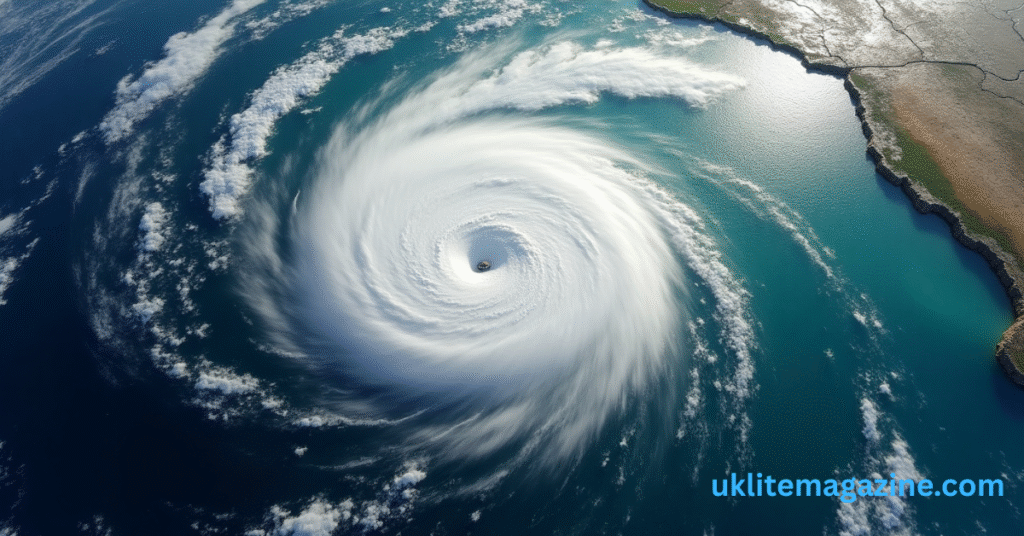The Atlantic hurricane season has taken a sharp turn as Tropical Storm Dexter strengthened into a hurricane, prompting growing concerns across coastal regions. With rising ocean temperatures and a more active season forecasted, experts warn that Dexter may be just the beginning of increased storm activity in the coming weeks.
What Happened: Dexter’s Rapid Intensification
Tropical Storm Dexter began as a low-pressure disturbance in the central Atlantic but quickly gained strength due to favorable weather conditions — including warm sea surface temperatures and low wind shear. Within just 48 hours, Dexter intensified into a Category 1 hurricane, according to the National Hurricane Center (NHC).
Meteorologists have been closely tracking the system, noting its unusual speed and strength for this point in the season. Dexter’s development highlights how climate change may be contributing to stronger and more frequent storms in the Atlantic basin.
Where Is Hurricane Dexter Now?
As of the latest update, Hurricane Dexter is moving northwest at approximately 15 mph, with sustained winds of 80 mph. While it remains offshore, its outer bands are already impacting some Caribbean islands with heavy rain and strong gusts.
Forecasters are uncertain whether Dexter will make landfall, but they are urging residents in the Southeastern U.S., Bermuda, and parts of the Bahamas to monitor updates closely. Even without a direct landfall, Dexter could bring dangerous rip currents, flash flooding, and coastal erosion.
Why the Atlantic Could See More Storms
Dexter’s rapid development is raising questions about what lies ahead for the Atlantic hurricane season. According to NOAA, above-average ocean temperatures and the fading influence of El Niño may set the stage for a busier-than-usual storm season.
Several tropical waves are already forming off the coast of Africa — the typical breeding ground for Atlantic hurricanes. Meteorologists believe this could signal the start of a more active period, especially during the peak months of August and September.
Expert Warnings and Precautions
Meteorologists and emergency management teams are urging the public to stay informed and prepared. Dr. Laura Jennings of the National Weather Service stated:
“Dexter is a reminder that conditions can change quickly. Even if a storm doesn’t make landfall, it can cause significant damage from a distance.”
Residents in hurricane-prone areas should:
-
Review emergency evacuation plans
-
Check hurricane supply kits
-
Monitor official updates from the NHC and local authorities
-
Avoid unnecessary travel during watches or warnings
Storms Like Dexter: A Growing Trend?
Hurricane Dexter isn’t an isolated event. Over the past five years, there has been a noticeable trend of stronger, faster-developing storms. Experts link this to climate change and rising sea temperatures, which provide the fuel storms need to intensify quickly.
According to a recent study by the Journal of Climate Science, the number of Category 4 and 5 hurricanes has nearly doubled in the Atlantic since the early 2000s. This trend poses greater challenges for forecasting, preparedness, and disaster response.
What’s Next for the Atlantic?
The Atlantic hurricane season officially runs through November 30, but the most active period typically falls between mid-August and late September. With Hurricane Dexter now active, forecasters expect at least 3–5 more named storms to develop in the coming weeks.
While it’s impossible to predict every storm’s path, the current environment suggests that residents in coastal areas must stay vigilant. Preparedness now could save lives and property later.
Quick Summary
| Key Detail | Information |
|---|---|
| Storm Name | Hurricane Dexter |
| Current Status | Category 1 Hurricane |
| Wind Speed | 80 mph |
| Movement | NW at 15 mph |
| Affected Regions | Southeastern U.S., Bahamas, Bermuda |
| Forecast Risk | Coastal flooding, rip currents, rain |
| Hurricane Season Peak | Mid-August to Late September |
Conclusion
Hurricane Dexter is a stark reminder of how quickly a storm can escalate during an already unpredictable hurricane season. As the Atlantic heats up, both literally and figuratively, communities across the eastern seaboard must brace for more activity. Now is the time to stay alert, be prepared, and prioritize safety.
Frequently Asked Questions (FAQs)
Is Hurricane Dexter expected to make landfall?
As of now, Dexter is not forecast to make direct landfall, but it may impact coastal areas with heavy rain and strong winds.
How strong is Hurricane Dexter?
Dexter is currently a Category 1 hurricane with sustained winds of around 80 mph.
What makes Dexter significant?
Dexter’s rapid intensification and timing indicate that the 2025 hurricane season could be more active than usual.
Is climate change affecting hurricanes?
Yes. Rising sea temperatures and climate shifts are contributing to more frequent and powerful storms.
How should people prepare for upcoming storms?
Check evacuation plans, keep emergency supplies ready, and follow trusted weather updates regularly.

